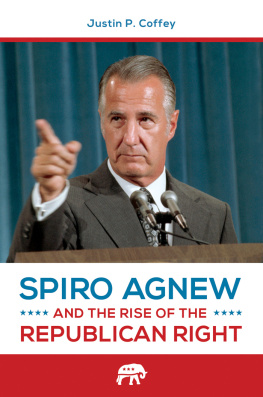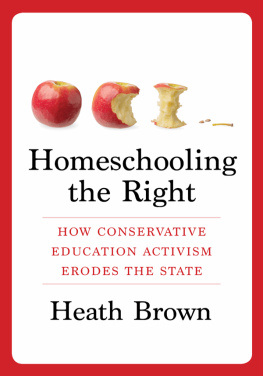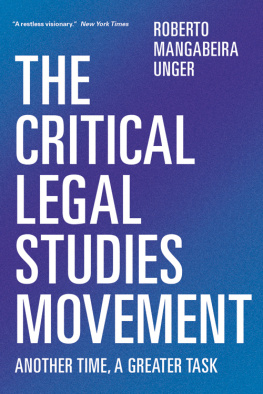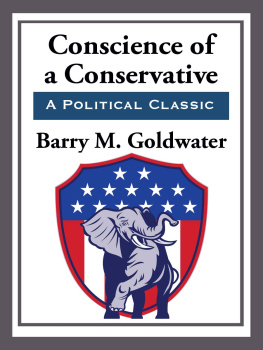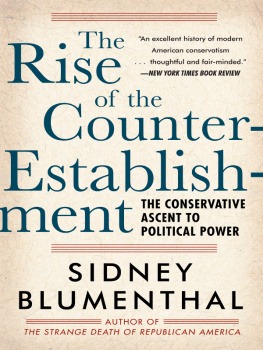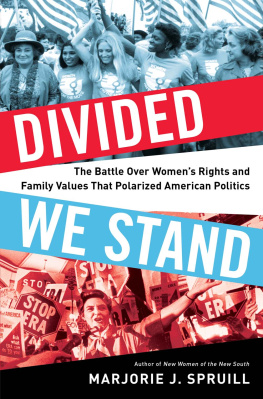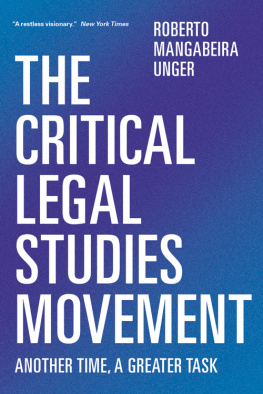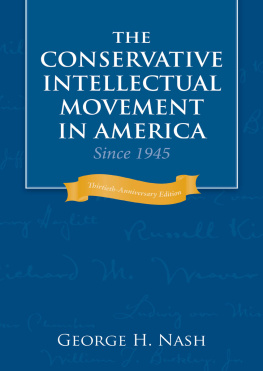Teles - The rise of the conservative legal movement: the battle for control of the law
Here you can read online Teles - The rise of the conservative legal movement: the battle for control of the law full text of the book (entire story) in english for free. Download pdf and epub, get meaning, cover and reviews about this ebook. City: Princeton;NJ, year: 2010;2011, publisher: Princeton University Press, genre: Politics. Description of the work, (preface) as well as reviews are available. Best literature library LitArk.com created for fans of good reading and offers a wide selection of genres:
Romance novel
Science fiction
Adventure
Detective
Science
History
Home and family
Prose
Art
Politics
Computer
Non-fiction
Religion
Business
Children
Humor
Choose a favorite category and find really read worthwhile books. Enjoy immersion in the world of imagination, feel the emotions of the characters or learn something new for yourself, make an fascinating discovery.

- Book:The rise of the conservative legal movement: the battle for control of the law
- Author:
- Publisher:Princeton University Press
- Genre:
- Year:2010;2011
- City:Princeton;NJ
- Rating:3 / 5
- Favourites:Add to favourites
- Your mark:
- 60
- 1
- 2
- 3
- 4
- 5
The rise of the conservative legal movement: the battle for control of the law: summary, description and annotation
We offer to read an annotation, description, summary or preface (depends on what the author of the book "The rise of the conservative legal movement: the battle for control of the law" wrote himself). If you haven't found the necessary information about the book — write in the comments, we will try to find it.
Teles: author's other books
Who wrote The rise of the conservative legal movement: the battle for control of the law? Find out the surname, the name of the author of the book and a list of all author's works by series.
The rise of the conservative legal movement: the battle for control of the law — read online for free the complete book (whole text) full work
Below is the text of the book, divided by pages. System saving the place of the last page read, allows you to conveniently read the book "The rise of the conservative legal movement: the battle for control of the law" online for free, without having to search again every time where you left off. Put a bookmark, and you can go to the page where you finished reading at any time.
Font size:
Interval:
Bookmark:
The Battle for Control of the Law
Steven M. Teles
Starting in the 1970s, conservatives learned that electoral victory did not easily convert into a reversal of important liberal accomplishments, especially in the law. As a result, conservatives mobilizing efforts increasingly turned to law schools, professional networks, public interest groups, and the judiciaryareas traditionally controlled by liberals. Drawing from internal documents, as well as interviews with key conservative figures, The Rise of the Conservative Legal Movement examines this sometimes fitful, and still only partially successful, conservative challenge to liberal domination of the law and American legal institutions.
Unlike accounts that depict the conservatives as fiendishly skilled, The Rise of the Conservative Legal Movement reveals the formidable challenges that conservatives faced in competing with legal liberalism. Steven Teles explores how conservative mobilization was shaped by the legal profession, the legacy of the liberal movement, and the difficulties in matching strategic opportunities with effective organizational responses. He explains how foundations and groups promoting conservative ideas built a network designed to dislodge legal liberalism from American elite institutions. And he portrays the reality, not of a grand strategy masterfully pursued, but of individuals and political entrepreneurs learning from trial and error.
Using previously unavailable materials from the Olin Foundation, Federalist Society, Center for Individual Rights, Institute for Justice, and Law and Economics Center, The Rise of the Conservative Legal Movement provides an unprecedented look at the inner life of the conservative movement. Lawyers, historians, sociologists, political scientists, and activists seeking to learn from the conservative experience in the law will find it compelling reading.
Steven M. Teles is associate professor of public policy at the University of Maryland and visiting lecturer at Yale Law School.
PRINCETON STUDIES IN AMERICAN POLITICS:
HISTORICAL, INTERNATIONAL,
AND COMPARATIVE PERSPECTIVES

Ira Katznelson, Martin Shefter,
and Theda Skocpol, Series Editors
Jacket design by Marcella Engel Roberts
Jacket illustration by Marcella Engel Roberts
Original jacket photo Shutterstock.com/
Timothy R. Nichols
Altered jacket photo and photography
by Marcella Engel Roberts
PRINCETON STUDIES IN AMERICAN POLITICS:
HISTORICAL, INTERNATIONAL, AND COMPARATIVE PERSPECTIVES
Series Editors
Ira Katznelson, Martin Shefter, Theda Skocpol
A list of titles in this series appears at the back of the book
CONTROL OF THE LAW
Steven M. Teles

Copyright 2008 by Princeton University Press
Published by Princeton University Press, 41 William Street, Princeton, New Jersey 08540
In the United Kingdom: Princeton University Press, 6 Oxford Street, Woodstock,
Oxfordshire OX20 1TW
All Rights Reserved
Library of Congress Cataloging-in-Publication Data
Teles, Steven Michael.
The rise of the conservative legal movement : the battle for control of the law / Steven M. Teles.
p. cm. (Princeton studies in American politics : historical, international, and comparative perspectives)
Includes bibliographical references and index.
ISBN 978-0-691-12208-3 (cloth : alk. paper)
1. LawPolitical aspectsUnited States. 2. LawEconomic aspectsUnited States. 3. Justice, Administration ofUnited States. 4. ConservatismUnited States.
5. LiberalismUnited States. I. Title.
KF385.T45 2008
340.11dc22 2007040836
British Library Cataloging-in-Publication Data is available
This book has been composed in Sabon
Printed on acid-free paper.
press.princeton.edu
Printed in the United States of America
10 9 8 7 6 5 4 3 2 1
Appendix
Interviews
IN WRITING THIS BOOK, I have acquired more than the usual authorial debts. My parents were this books earliest and most important patrons. They lavishly invested in my human capital and provided a vital in-kind subsidy to the research processif they lived outside the Washington Beltway, I could not have afforded my many research trips to D.C.
I drafted while a fellow at Princeton Universitys James Madison Program, and I owe a special debt to Professor Robert George, an organizational entrepreneur of unusual skill as well as a true intellectual. Yale University provided me a wonderful home for the last year and a half of writing this book. I would like to thank Yales Alan Gerber, whose Center for the Study of American Politics provided me a fellowship in 20056 (which was partially devoted to this project), and Dan Kahan, who as Associate Dean helped arrange for me to teach at the Law School in the fall of 2006. The Achiles and Bodman Foundation provided a very generousand timelygrant for the 20034 academic year that helped fund my nonsabbatical leave, and the Earhart Foundation provided summer and research support for the project. I would never have completed this book without this support.
I also owe a debt to my many sources within the conservative movement. Pride of place goes to Eugene Meyer of the Federalist Society, who provided my first real breakthrough in obtaining internal organizational documents. Gene was under no obligation whatsoever to provide me the remarkable access that he didI still recall being pointed to the file cabinet, in a cramped closet in the Societys offices, and being told that it was mine to rummage through. Thanks are also due to Steven Calabresi, David McIntosh, Lee Liberman Otis, and Gary Lawson, who subjected themselves to interviews, follow-ups, and reading an early draft of . Their willingness to trust someone who was clearly not on the team is to be commended.
In the area of public interest law, my debts are even wider. Clint Bolick, Chip Mellor, Terry Pell, Michael Greve, Jim Moody, David Kennedy, and Michael McDonald, among others, shared their time, and, in most cases, were willing to talk to me multiple times and read draft chapters, in order to help me get the complicated stories of the organizations straight. I was repeatedly struck by their candor, even to the point that, more than once, I penned e-mails reminding them that they were on the record. Special recognition must be given to Michael Greve, who replied to dozens of e-mails, and read drafts of the chapters on public interest law and the Federalist Society. In addition, in one especially important case, his encouragement to look beyond the public record helped me to avoid a particularly spectacular case of historical oversight.
My chapters on law and economics would have been much poorer without the help of numerous scholars in the field. Robert Cooter, Christine Jolls, Robert Ellickson, Steven Shavell, Mitch Polinsky, Roberta Romano, Jerry Mashaw, Todd Zywicki, Michael Graetz, and others read are based upon. Henry also interrupted his otherwise idyllic life in Naples, Florida, for a number of very long interviews, and was willing to respond to dozens of e-mail requests for information. Henry truly went above and beyond the call of duty.
Font size:
Interval:
Bookmark:
Similar books «The rise of the conservative legal movement: the battle for control of the law»
Look at similar books to The rise of the conservative legal movement: the battle for control of the law. We have selected literature similar in name and meaning in the hope of providing readers with more options to find new, interesting, not yet read works.
Discussion, reviews of the book The rise of the conservative legal movement: the battle for control of the law and just readers' own opinions. Leave your comments, write what you think about the work, its meaning or the main characters. Specify what exactly you liked and what you didn't like, and why you think so.

